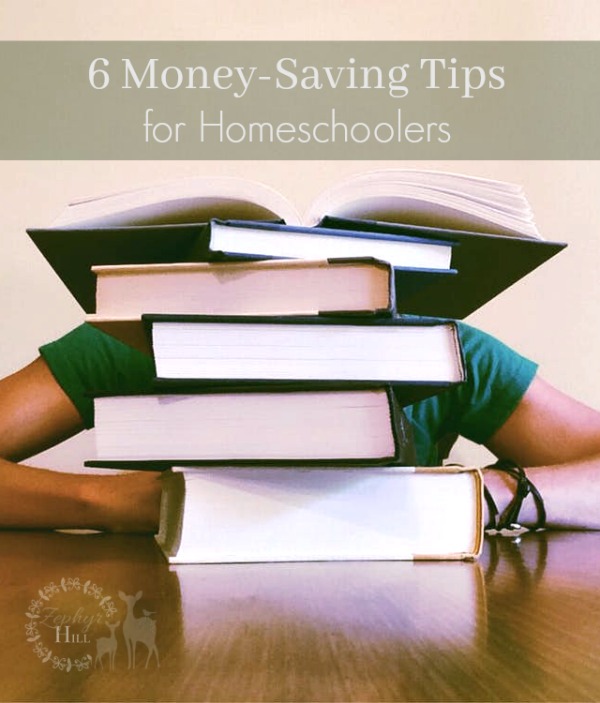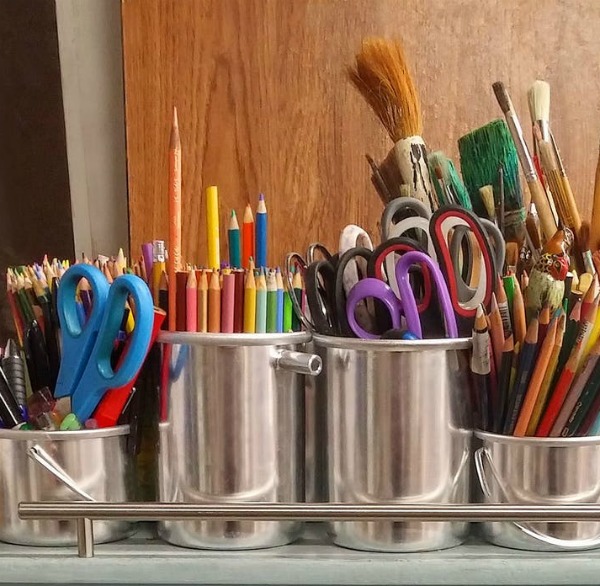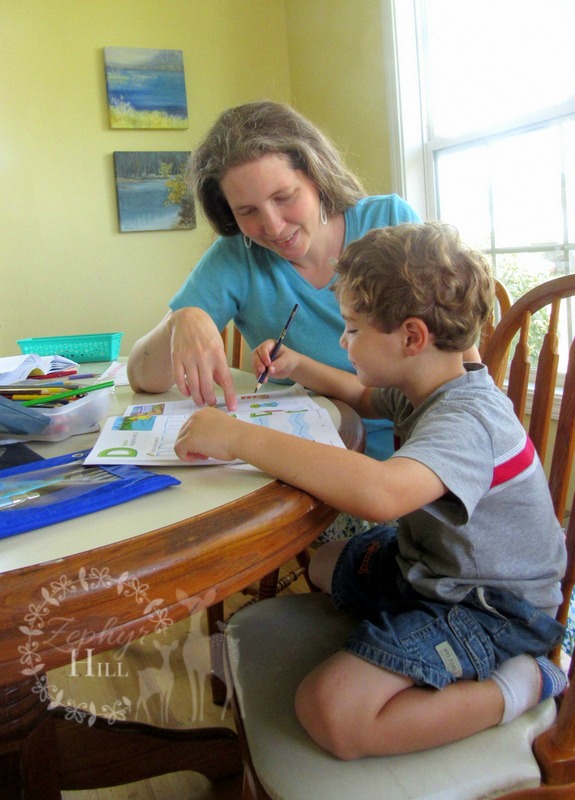
Thanks to The Toddle for sponsoring this post!
One of the nicest things about homeschooling is its flexibility. Parents get to choose what – and how much – to buy. But that same flexibility can lead to unnecessary expenses if you’re not careful. Here are some ways to help minimize your spending without sacrificing the quality of your child’s education.
Love Your Local Library
The library can be a huge help for homeschooling parents on a budget. Get a library card and use it to supplement the core textbooks in your family’s curriculum. Borrow reading materials that you do not expect to use for a long time. For example, you can check out books on different kinds of animals to enrich your family’s study of the animal kingdom. Read them together with your child and then return them. It makes more sense to borrow books you will read only once than pay extra money only for them to gather dust on the shelf.
Want to buy a book or DVD but not sure if it’s worth the money or not? See if your library has it and get it on loan. If you find yourself borrowing it a lot, then a purchase may be justified.
Your local library can be useful in other ways too. Check its digital services for features like online magazines (must be kid-friendly, of course), streaming videos, electronic books, language courses and for older students, software training. Also, look up the library’s calendar for events and activities that your family may enjoy.
Shop Wisely
While grade-school textbooks might not be as expensive as college books, the costs do add up. Buying used materials can make a big difference in your expenditures. Shop for used, reusable books at sites like Amazon or eBay. Many second-hand titles are sold on Amazon for a few cents plus a standard shipping fee. Usually, the cheaper the book, the poorer its condition. Read the ads or descriptions carefully so you know what you are getting, and check the seller’s reputation, too.
You can also drop by a local thrift store, dollar store or used bookstore for books and school supplies like crayons and paper.
Beware of buying some educational materials in used condition, such as consumable workbooks. A consumable workbook or other item may have restrictions on the number of times they may be used or reused. Reproduction, including photocopying, may also be prohibited. Look up the copyright information in each book or item (ideally, before you buy it). Check if reproduction and/or reuse is allowed. When in doubt, contact the publisher.

Make the Internet Your Friend
The web rivals your local library as a source of free educational materials. You will be amazed at the sheer amount of free stuff that other homeschooling folks have put out there: printable worksheets, lesson plans, games, videos, journals, activities and many more. There are so many good homeschooling websites and blogs to name, so just head over to your favorite search engine and look up “homeschooling free resources” to start, or type in “printable math worksheets,” or whatever you need.
Bear in mind that the quality of free stuff online varies greatly! Also, you will need to print most of them, so don’t forget to consider the cost of printer paper and ink if you want to print a lot.
Ask Others for What They No Longer Need
Many households have stacks of books waiting to be disposed of. You’ll find a lot of that on eBay, but why not ask people you know first? Turn to family and friends who have children of their own. They may have school textbooks and other materials that their kids have outgrown yet are still usable. If you ask them, they might just give them to you for nothing. You get free goods, and they free up space in their homes without having to drive to the nearest donation center. Other places to check are local schools and your local library.
Don’t Buy Into Everything
Homeschooling is an exciting adventure. It is easy to get carried away by the desire to give your child the best home-based education possible. Watch yourself! You don’t necessarily have to buy the complete packages or bundles. Expensive supplemental materials like DVD’s and book sets aren’t absolutely required. Invest in the core materials – the “backbone” of your curriculum – and be picky about the rest.
Start off slowly. It may turn out that a particular author or publisher’s books do not suit your family’s needs as you may have first thought, or a curriculum might not be as appealing or effective as you had hoped. If you had bought lots of books right away, you would have wasted a great deal of money. Sample a book or two and see how your family likes it before getting any more.

Design Your Own Curriculum
Depending on how you do it, you can save money by designing your own homeschool curriculum. That means you choose and buy items individually and plan lessons for each school year. If you are smart and know not to overspend, your savings could be considerable. Naturally, this would take more time and commitment than buying a prepackaged, complete course. If you have enough confidence in yourself as a teacher, and you have the time, this could be a viable option.
Tip: If you decide to customize your homeschool curriculum, find recommendations from sources you trust. Whether it is a favorite author, a homeschooling blog or your best friend, it could save you a lot of research.
The Takeaway
A good education does not have to be expensive. Be smart with your choices. You probably need much less to homeschool than you think. And the money you save can be put aside for other important and enjoyable things. Besides, spending money wisely is a valuable lesson that you can teach your child.

About the Guest Author: Liz Sparks is a parenting writer and owner of thetoddle.com, a website dedicated to helping parents make empowered decisions when it comes to raising their children. As the mom of an only child, Liz has a unique perspective on parenting. She loves to share her experiences of being a high-strung, “Type A” mother in an imperfect world!
Love these tips for saving money if you’re a home schooler!
I’m thinking about homeschooling my child when he’s old enough. These are great tips!
Yes!! The library is SUCH an amazing resource! I mean they have so many books on every topic and so many resources!! We are always going to ours!
nice hidden tips
It is amazing how the Library has books and other helpful and useful resources that I thought they would not have….will definitely look into it….thank you for these tips as I am a first time homeschooler…wonderful information!
These are great tips! Thank you!
Homeschooling has become a topic in our house. This post helped me realise it does not have to be as expensive as I thought it was.
These are great tips. I’m just starting our homeschool journey and the urge to buy everything is strong! Thanks for the insight.